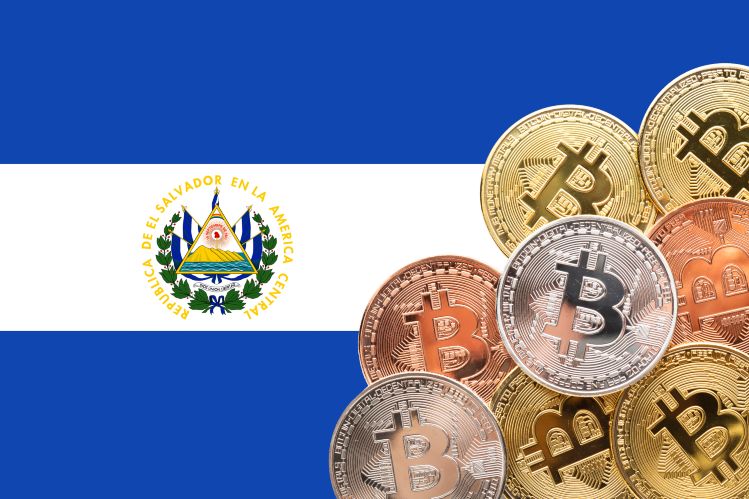The news out of El Salvador has Bitcoin enthusiasts taking notice. It has been a debate over the years, practically since Bitcoin gained some remarkable value, whether or not to officially approve it as a legal tender. The argument seems to have been in favor of opponents who reject the proposition because of the wild price swings the digital currency exhibits.
However, on 7th September 2021, El Salvador’s president, Nayib Bukele, approved the use of Bitcoin as a legal medium of exchange in the country. This announcement has since drawn a lot of attention. Questions like “what are his reasons?”, “Is this the best decision for the country?”, have become frequent.
Salvador Has Become the First Country To Accept Bitcoin as a Legal Tender
On September 7, 2021, Salvador became the first country to accept the use of the Bitcoin cryptocurrency as a legal tender. Though digital currency is only an additional legal tender while the US dollar remains the primary medium of exchange, its addition of Bitcoin is remarkable.
According to the President, “use of bitcoin will be optional”, while “salaries and pensions will continue to be paid in dollars”. He further stressed that anyone can choose to be paid in dollars rather than Bitcoin.
President Bukele was not alone in this agreement however, as he had the support of the legislature. Lawmakers in the Central American country’s Congress voted by a “supermajority” in approval of the Bitcoin Law, with 62 out of 84 votes.
This move has made the country a ground for the first national experiment on the use of Bitcoin. Bitcoin has been known to be a highly volatile currency, yet has continued to attract many investors around the globe. Therefore, many have become curious as to what the outcome of this law will be on the country. And, who knows it might set the pace for a global acceptance of the currency.
Immediately after this pronouncement by Salvador’s president, the price of Bitcoin fell, although it has begun to rise again, at a sluggish pace.
What is the Rationale Behind El Salvador’s Choice?
The law that validates the use of Bitcoin in Salvador reads “The purpose of this law is to regulate bitcoin as unrestricted legal tender with liberating power”. Also “unlimited in any transaction, and to any title that public or private natural or legal persons require carrying out”.
From this law, it is clear that Salvador’s decision was geared at advancing the country toward the first world. The president is optimistic that legalizing Bitcoin will attract investors into the country. Furthermore, it will be of help to nearly 70% of citizens who cannot access “traditional financial services.”
Particularly, he anticipates ease in obtaining remittances from abroad for citizens. These citizens could get remittances cheaper and quicker.
And of course, for a heavily indebted country like Salvador, remittances can be a suitable source of income. President Bukele thinks that the use of Bitcoin will decrease the country’s yearly payments on remittances by almost $400 million, and encourage more funds transfers.
This can be a great relief to the country’s economy, and in no time her economy might become stable and thriving. As of 2020, remittances from abroad summed up to $5.9 billion, which is over a fifth of Salvador’s GDP.
In addition, El Salvador’s government holds 550 Bitcoin, and according to Bukele, it is equivalent to roughly $26 million.
Promoting the Acceptance of Bitcoin
The Bitcoin law requires all businesses to accept Bitcoin as payment. The Salvadoran government, on its part, is committed to making this new initiative work. Therefore, it has decided to contribute $150 million to a trust to enable dollar conversions.
Further, the government has created a digital wallet known as “Chivo” and to every Salvadorian who downloads it, the government gives $30 worth of Bitcoin.
Citizens of Salvador will also be able to withdraw their funds stored in Bitcoin, in cash, from 200 ATMs. They can still withdraw from any other of the 50 locations which the government would provide.
However, the digital wallet seemed to have encountered technical issues which led the government into withdrawing it. After bug concerns, it will be reactivated.
Fears Expressed Towards Salvador’s Decision
Many financial authorities are skeptical about El Salvador’s move to Bitcoin. For the International monetary funds (IMF), this move raised a lot of negative concerns. The organization thinks that this decision will foster money laundering and other financial crimes in the country.
It therefore warns, “This could pose risks to a country’s financial system, fiscal balance, and relationships with foreign countries and correspondent banks”.
Some financial experts have also expressed their fears about Salvador’s decision. They emphasize that the country is taking a risky stance that is rooted in the high volatility nature of cryptocurrencies such as Bitcoin. Aside from being highly volatile, these currencies do not have physical backing – they are speculative assets, and as such, the value may constantly fluctuate.
Citizens also are divided with regards to this law. In a survey, over two-thirds of Salvador’s citizens wanted the Bitcoin law revoked and many do not intend to use Bitcoin. Some were not settled about the law owing to the volatility of the currency, while others considered their level of exposure.
Only about a third of Salvadorans use the Internet, and a large number live below average. However, the law asserts that the state will “promote the necessary training and mechanisms so that the population can access bitcoin transactions”.
The Future
Salvador has made history as the first country in the world to accept Bitcoin as a legal tender. You can see that the president seeks to use Bitcoin technology to boost financial inclusion and strengthen the country’s financial infrastructure.
While no one knows what the outcome of this law will be, as it is the first trial ever, almost everyone awaits the result. This may further determine the fate of Bitcoin as a medium of exchange; whether it will be accepted or not.










